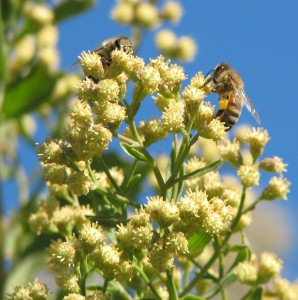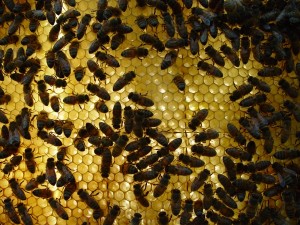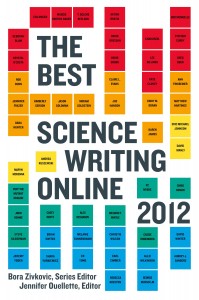Science For Six-Year-Olds (SFSYO for this school year) is a recurring segment on Science Decoded for Mrs. Podolak’s first grade class at Lincoln-Hubbard elementary school. This year the posts are inspired by #iamscience (also a Tumblr) and #realwomenofscience two hashtags on Twitter that drove home for me the importance of teaching people who scientists are and what they really do.
Hello first graders. Happy May, I’m excited for spring and warm weather, aren’t you? This month I’m pleased to introduce you to David Tarpey, PhD. David is an entomologist (he studies bugs!) at North Carolina State University. Like I did with our other scientists, Penny, Philipp, Anne-Marike, Pete, Becky, Michael, and Jenny I asked him questions about his job as a scientist to learn more about what he really does. I hope you enjoy learning about his work! Below you can read our interview, and if you’d like to ask him any questions, be sure to leave them in the comments.
Erin: What type of scientist are you?
David: I’m an entomologist, a scientist who studies insects. There are lots of types of bugs though, so most entomologists specialize in different areas. My speciality is honey bees, so my area of expertise is named apiculture.
Erin: Where did you go to school, and what did you study?
David: I got my undergraduate degree at Hobart College, my Master of Science at Bucknell University and my PhD at the University of California, Davis. While an undergrad I actually got my first experience in research while on my junior year abroad at Oxford University in England studying the learning behavior of birds (starlings to be precise). I took that experience back to Hobart and did a different project for my senior thesis on the mating behaviors of Hawaiian drosophila, the picture-winged fruit flies, which was my first introduction to insect science. I then started my masters project on honey bees, and ever since then I’ve been hooked! My MS project investigated the fascinating process by which a new queen takes over the colony from the old mother queen, which involves rival sister queens fighting each other to the death until only one remains. My PhD project also involved research on queens, studying why they mate with an unusually high number of males, or drones. I’ve continued research on that same question ever since.
Erin: Where do you work, and what does a typical day at work entail?
David: I’m in the Entomology Department at North Carolina State University, one of the largest and arguably the best entomology department in the country. My typical work day is anything but typical, as I do many things in my position. Some days I teach a large class of non-science majors about how cool bees are, using them to learn about biology in order to appreciate the process of science. Other days I work with beekeepers, teaching them how to best manage their beehives to keep their colonies healthy and productive so the bees can pollinate all the crops that we eat every day. Still other days, I work with other members of our lab to do research on why honey bees do what they do, and how they go about doing it. We use lots of different ways to address these questions, including genetics and glass-walled observation hives so we can watch what’s going on inside.
Erin: Why did you decide to become a scientist?
David: I’ve always known I’ve wanted to be a scientist. It may be in part because my father was a research psychologist so I’ve always been in academia, or it may be because I’ve loved exploring and tinkering in the outdoors since as early as I can remember. But what really got me excited about science was the first time I opened up a beehive containing ~50,000 bees and a single queen. Realizing how surprisingly peaceful they were and how they worked together for the greater good was so fascinating to me, I just had to understand more!
Erin: What is your favorite thing about your job?
David: I really enjoy all the different aspects of my job. Teaching students the fascinating biology of bees constantly renews my love and admiration for them, as does my working with beekeepers to help perfect their management of their beehives. Researching how colonies function is also very rewarding, as I feel like a detective trying to figure out an infinitely complex and interesting puzzle.
Erin: What is something about your job that would surprise us?
David: Being the honey bee expert in North Carolina, one of the more surprising things that I do every year is help the NC State Fair judge all of the entries for honey, wax, and hive products. Beekeepers have many rewards, and they love to compete with each other to see who can bottle the best honey and make the best candles. We therefore help decide who wins the blue ribbon every year!
Erin: What are some of the things you like to do for fun?
David: I love sports, so I play a lot of racquetball and basketball, and I also help coach my son’s soccer team. I’m also an avid hiker and enjoy camping in the outdoors. I also wish I could be as hands-on with beekeeping as I used to be, since I enjoy playing with the bees as much as I can.
***
What do you think first graders? Do any of you ever see bees in your backyard or at the park? What are some of the things you know about bees? Do you have any questions for Dr. David? Be sure to leave him a comment! I think he has a pretty cool job, don’t you?
Thank you, David for being our May Scientist of the Month!




